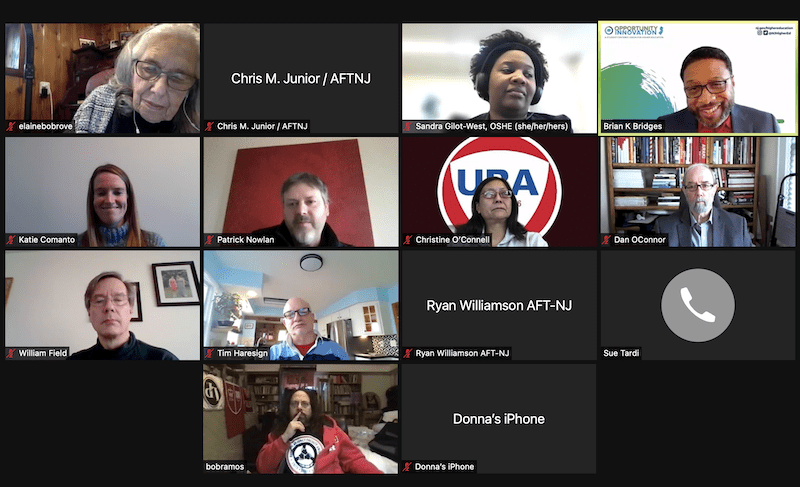The New Jersey Higher Education Leadership Council on Feb. 25 held its first virtual meeting of 2022 with New Jersey Secretary of Higher Education Dr. Brian Bridges.
On the agenda were pandemic-related safety requirements, funding priorities for the 2022-23 budget and the development of a statewide higher education priority-hiring process for layoff victims, but the topic that received the most attention during the hourlong discussion was university financial oversight.
Dr. Susanna Tardi, AFTNJ’s executive vice president/higher education and NJHELC’s chair, cited areas of concern at various N.J. universities, among them the amount of money that’s been invested in Rutgers University’s sports programs.
“This is taxpayer money,” Dr. Tardi said, “and no one external to [a college or university’s] president and the board gets to take a look at the recommendations that are going to be put forward at each of our institutions, and this autonomy has really created a problem.”
Dr. Bridges acknowledged that issues differ at each college and university, and he recommended continuing to raise the issues with respective boards of trustees, administrations and local leaders.
“While I respect that the issues are different,” Dr. Tardi replied, “it’s taxpayers’ money … We’re not saying that there should be a chancellor, but there should be someone who is examining these very high-level decisions that are costing a lot of money — and who gets hurt in the long run are the students.”
When it comes to oversight, there are legal limits to the Office of the Secretary of Higher Education’s authority, Dr. Bridges said. That prompted Dr. Tardi to ask him how he would feel about NJHELC working to develop legislation that would give OSHE more authority in this area.
If such legislation were to pass, “OSHE would be ready to implement it,” Dr. Bridges said.





